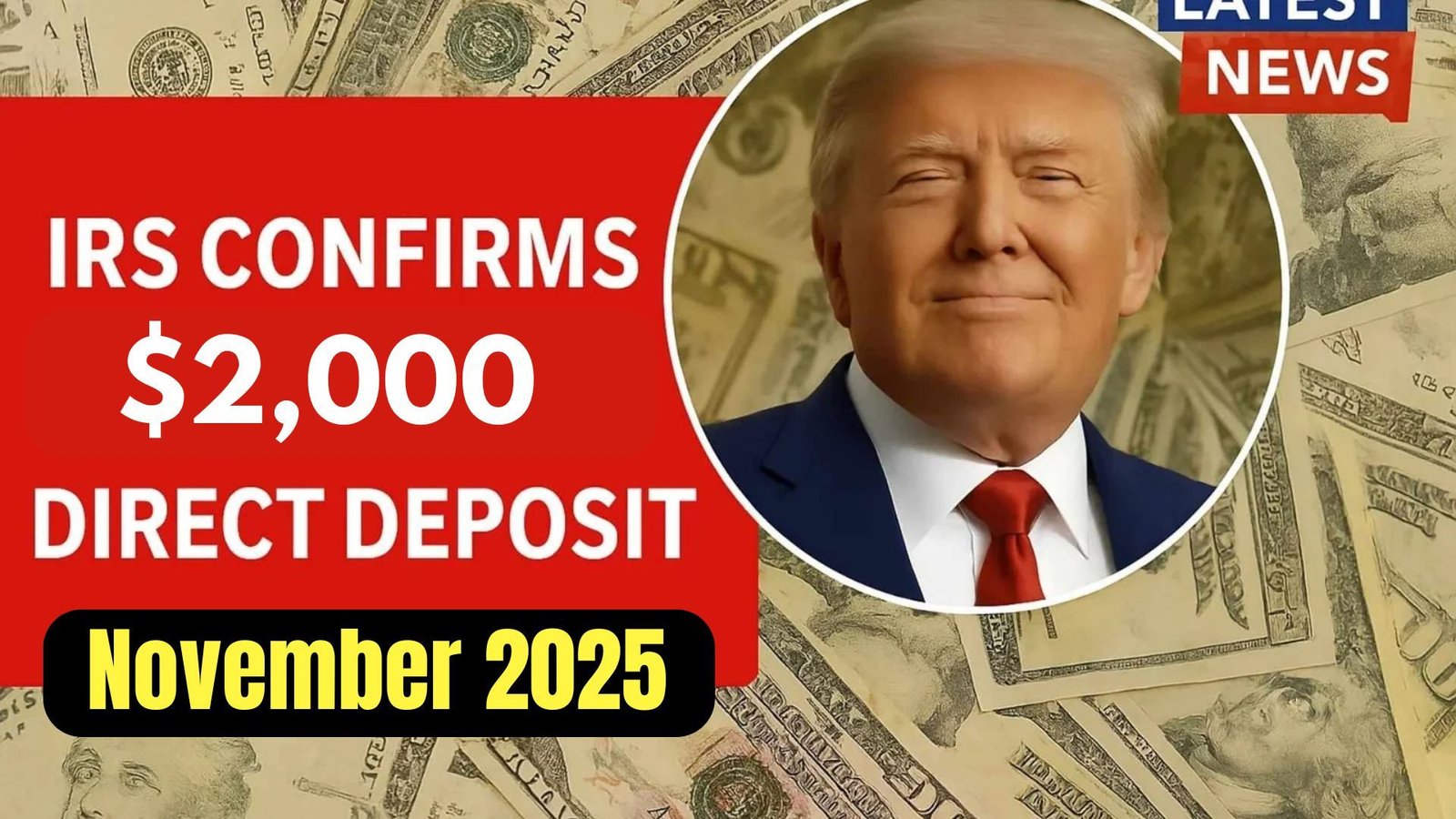Imagine this: It’s mid-November 2025, and your phone buzzes with a notification. Could it be the IRS finally dropping that elusive $2,000 direct deposit everyone’s whispering about? Your heart races—bills piling up, holidays looming. But wait… what if this “approval” hides a darker twist? Stick with me, because by the end, you’ll uncover the real story behind this viral frenzy, and it might just save you from a costly mistake. Ready to dive in?
What Is This Buzz About the IRS $2,000 Direct Deposit?
Picture scrolling through social media, and bam—posts screaming “IRS approves $2,000 direct deposit coming in Nov 2025.” It sounds like a dream: quick cash via direct payment to ease inflation woes. But here’s the hook—what if it’s not what it seems? This rumor promises relief for everyday folks, teasing eligibility based on past tax filings. Intriguing, right? Yet, whispers of “stimulus” echoes from pandemic days linger, pulling us deeper into the mystery.
The Surprising Backstory: How a Pandemic Lifeline Turned into 2025’s Wildest Rumor
Remember 2020? The IRS rolled out Economic Impact Payments—those stimulus checks up to $1,400 that felt like a lifeline amid lockdowns. Fast-forward to now: with economic jitters, online tales twist facts into fiction. This $2,000 direct deposit myth? It sprouted from old IRS recovery rebate credits, morphing via shady sites into a “new approval.” Shocking origin: viral TikToks and fake news outlets, preying on hope. Who knew a helpful history could spawn such chaos?
Why This Rumor Matters Now: The High Stakes in a Tense Economy
In 2025, with grocery prices soaring and job markets wobbly, a “direct payment” tease hits hard. It builds wild excitement—families dreaming of holiday feasts or debt payoffs. But the real value? Spotting scams early protects your info and sanity. Relevant today? Absolutely. As IRS warns of fraud spikes, ignoring this could cost you more than $2,000. The impact? Trust eroded, wallets drained. Exciting twist: Unmasking it empowers you to demand real relief from leaders.
How to Navigate the Hype: Claim Process Myths and Smart Moves
Ever wondered “how to claim this phantom payment**?**” Fake guides urge clicking dodgy links for “eligibility checks”—red flag! Benefit instead by verifying via official IRS tools. Game-changer: Update your bank info on IRS.gov for legit refunds. Engage safely: File taxes accurately to snag any true credits. Hint: This “process” is smoke and mirrors, but arming yourself with facts? That’s your real payout.
Real IRS Stimulus History vs. 2025 Rumor Breakdown
| Aspect | Past Real Stimulus (2020-2021) | 2025 $2,000 Rumor |
|---|---|---|
| Amount | Up to $1,400 per person | Claimed $2,000 direct deposit |
| Source | CARES Act legislation | No bill; viral social media posts |
| Payment Method | Direct deposit or check | “Approved” but unverified links |
| Eligibility | AGI under $75K, dependents | Vague “U.S. citizens” claims |
| Status | Fully issued by 2022 | Debunked by IRS as scam |
This contrast? Jaw-dropping. See how fiction flips facts?
Jaw-Dropping Stats: The Scale of Stimulus Scams in 2025
Hold onto your seat: The FTC reports over 2.6 million IRS scam complaints in 2024 alone, with losses topping $10 billion. For 2025? Early data shows a 30% spike in “stimulus” fakes, fueled by AI-generated posts. Record fact: One viral thread reached 5 million views in days, tricking thousands into fake “claim process” sites. Stats like these? They scream urgency—your next click could join the stats.
Insider Secrets: Expert Tips to Dodge the Direct Deposit Trap
Veteran tax pros spill: Always cross-check “payment dates” rumors against IRS.gov—no appy, no party. Secret #1: Enable two-factor on your accounts; scammers hate hurdles. #2: If it sounds too good (like instant $2K), it’s bait. Insight: Real IRS comms never demand upfront fees. Pro tip: Use the official “Where’s My Refund?” tool for true tracking. These gems? Your shield in the suspense.
Pros & Cons of Falling for Rumor vs. Staying Vigilant
| Approach | Pros | Cons |
|---|---|---|
| Chasing the Rumor | Quick thrill of hope | Identity theft, financial loss ($500+ avg) |
| Verifying Officially | Peace of mind, real refunds | Takes 5 mins; no fake excitement |
| Reporting Scams | Helps others, FTC rewards | Misses the “win” fantasy |
| Educating Friends | Builds community trust | Debunks fun buzz |
Unexpected reveal: Vigilance wins every time—fewer headaches, more security.
Frequently Asked Questions: Unraveling the $2,000 Mystery
Q: Is the IRS really approving $2,000 direct deposits in Nov 2025? A: Nope—official word confirms it’s a hoax. No new stimulus legislation exists.
Q: What about eligibility and payment dates? A: Rumors peg Nov 15-29, but that’s fiction. True eligibility ties to past unclaimed credits—file by April 2025 deadlines.
Q: How do I know if it’s a scam during the claim process? A: IRS never emails for payments or links. Call 800-829-1040 to verify.
Q: Will there be real direct payments soon? A: Watch Congress—proposals float, but nothing approved yet. Stay tuned!
Q: What if I clicked a fake site? A: Freeze credit, report to FTC.gov. Quick action limits damage.
These curiosities? Answered to ease your mind.
Wrapping the Rumor: Your Takeaway Twist and Next Steps
Whew—what a rollercoaster! This “IRS approves $2,000 direct deposit” saga started as pandemic nostalgia but exploded into 2025’s top scam alert. The twist? No windfall awaits, but your vigilance unlocks real wins: safer finances and smarter advocacy for true relief. Key takeaway: In a world of whispers, trust facts over frenzy. Action time—bookmark IRS.gov, share this with a friend, and push for legit stimulus policies. What’s your scam story? Drop it below. Stay savvy, friends!



